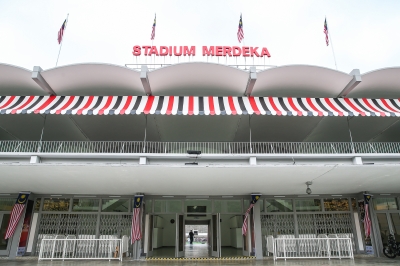KUALA LUMPUR, Sept 14 — You may have heard that Stadium Merdeka has been lovingly restored to its original design in 1957, but do you know why visiting the stadium feels like a trip back in time?
The answer is in all the smallest details of the stadium, which was lovingly restored in a project that even won an award of excellence from the United Nations Educational, Scientific and Cultural Organisation (Unesco).
So let’s go on a treasure hunt or a virtual tour through the lenses of Malay Mail photographers Yusof Mat Isa and Raymond Manuel:
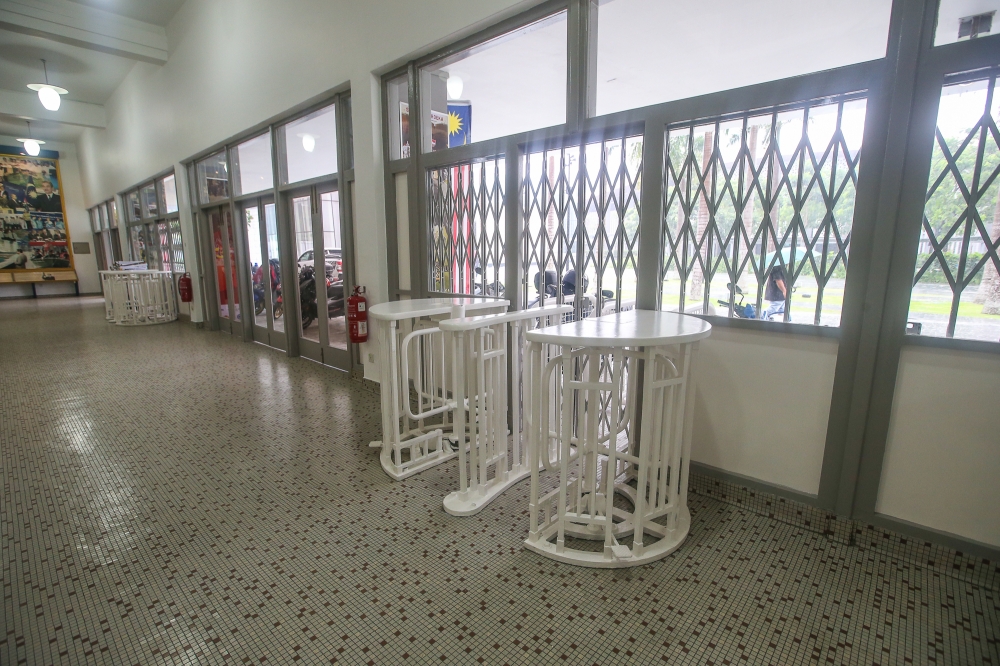
Step right in through the main entrance and you will see the turnstiles that were part of the stadium’s original design. — Pix by Yusof Mat Isa
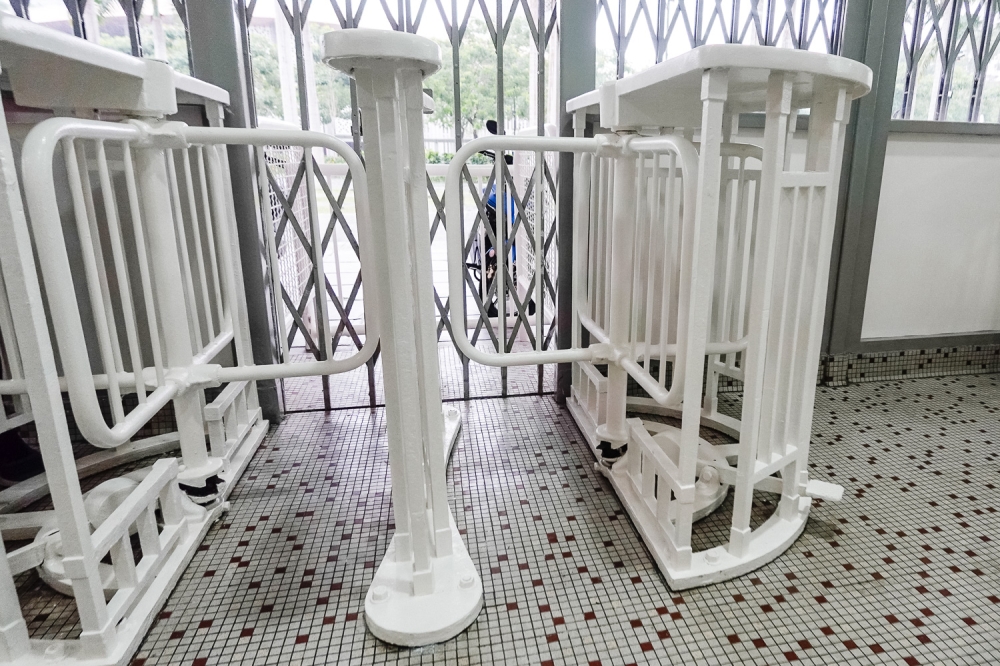
Here’s a close-up look at one of the turnstiles. — Pix by Yusof Mat Isa
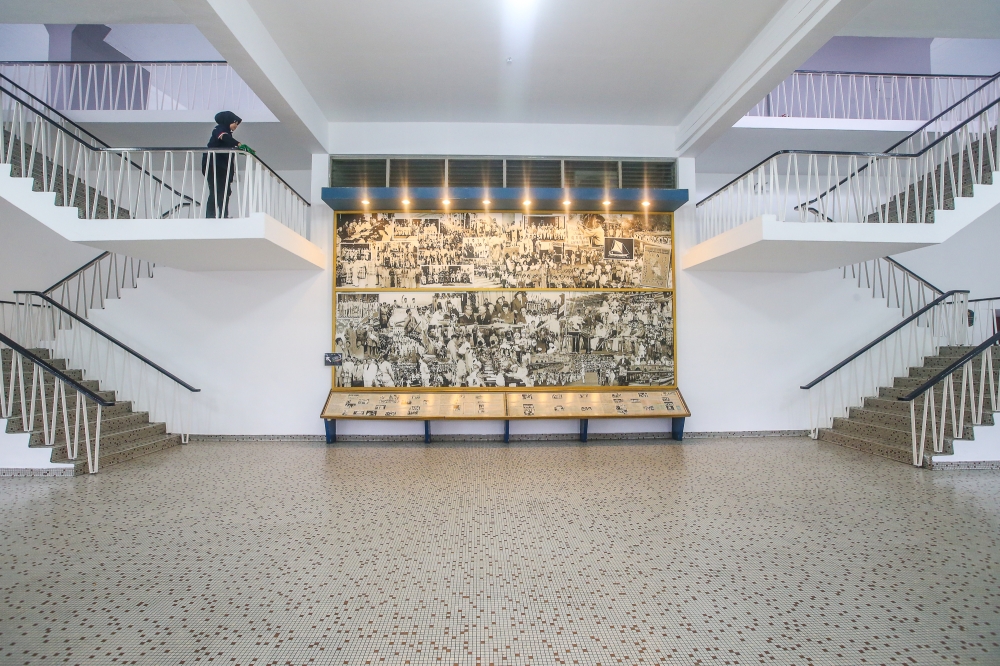
You will see four of these panels on the wall on Malaysia’s history. Start from the leftmost panel. — Pix by Yusof Mat Isa
After stepping in through Stadium Merdeka’s main entrance which features turnstiles, you will see a mini museum-like exhibition chronicling key events in the nation’s history, including black-and-white photographs of events as far back as the late 1800s.
The display of Malaysia’s history include sections on pre-Merdeka matters such as the Malayan Union and the Merdeka Mission; as well as the Merdeka proclamation at Stadium Merdeka on August 31, 1957, by Tunku Abdul Rahman; the Emergency in then Malaya and “Konfrontasi”; Malaysia’s formation; and also on the country’s prime ministers.
Also at the ground floor, there are three VIP rooms, named after Malaysia’s second prime minister Tun Abdul Razak Hussein, Malaysia’s first prime minister Tunku Abdul Rahman, and the stadium’s architect Tan Sri Stanley Jewkes. They feature new carpets that match its 1957 state.
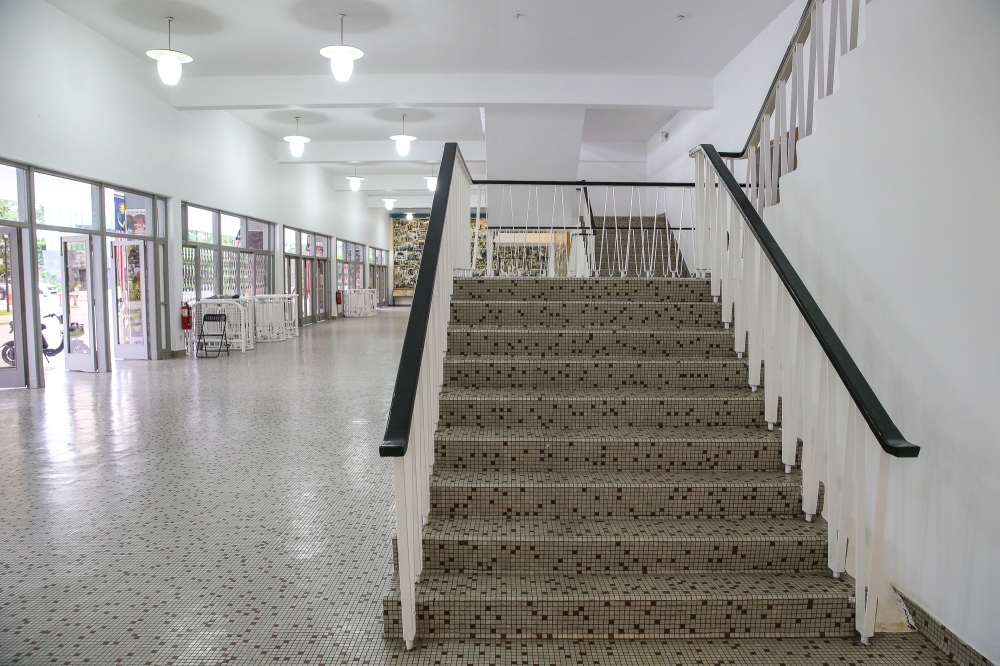
Now up the stairs we go, to the first floor. — Pix by Yusof Mat Isa
As you walk around in the main lobby at the ground floor and go up the stairs, have you noticed something?
Yes! That’s right. The pattern of the small mosaic tiles. The conservation team managed to obtain replicas of the original tiles and redo all these areas with these vintage-looking tiles.
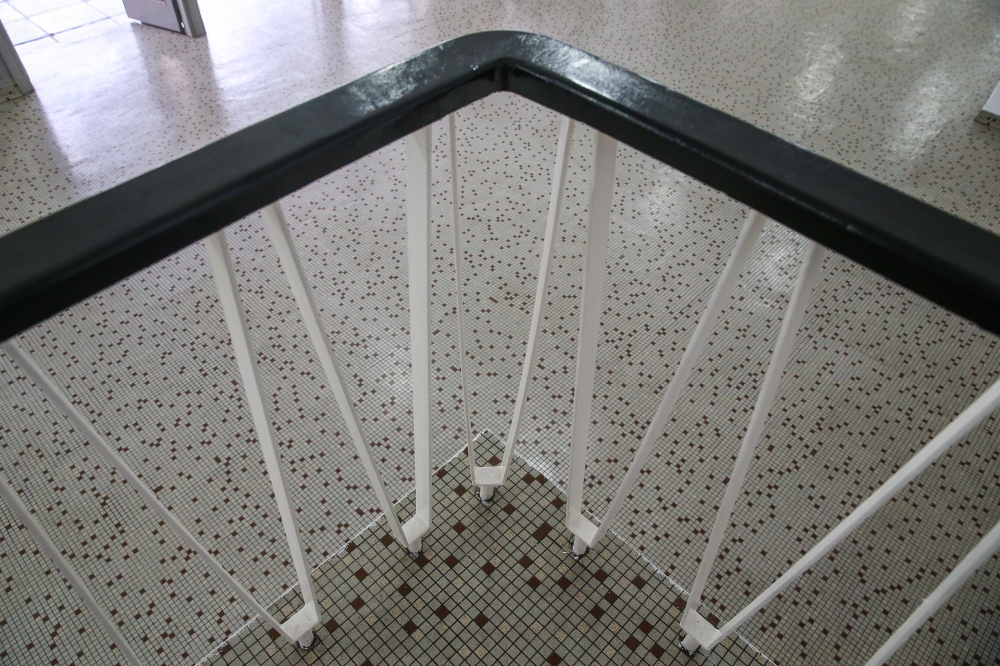
A close-up look of the tiles’ pattern. — Pix by Yusof Mat Isa
On the first floor, you can see the awning in their restored colour of red, white and black.
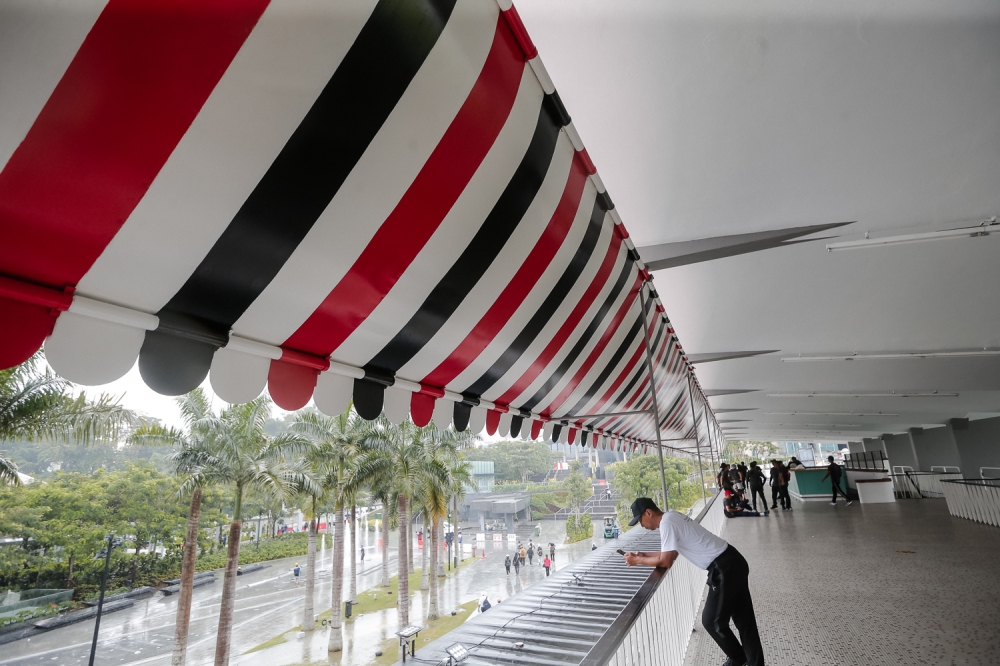
The metal awning, which had at one point been painted over with blue, has been restored to its original colour scheme. — Pix by Yusof Mat Isa
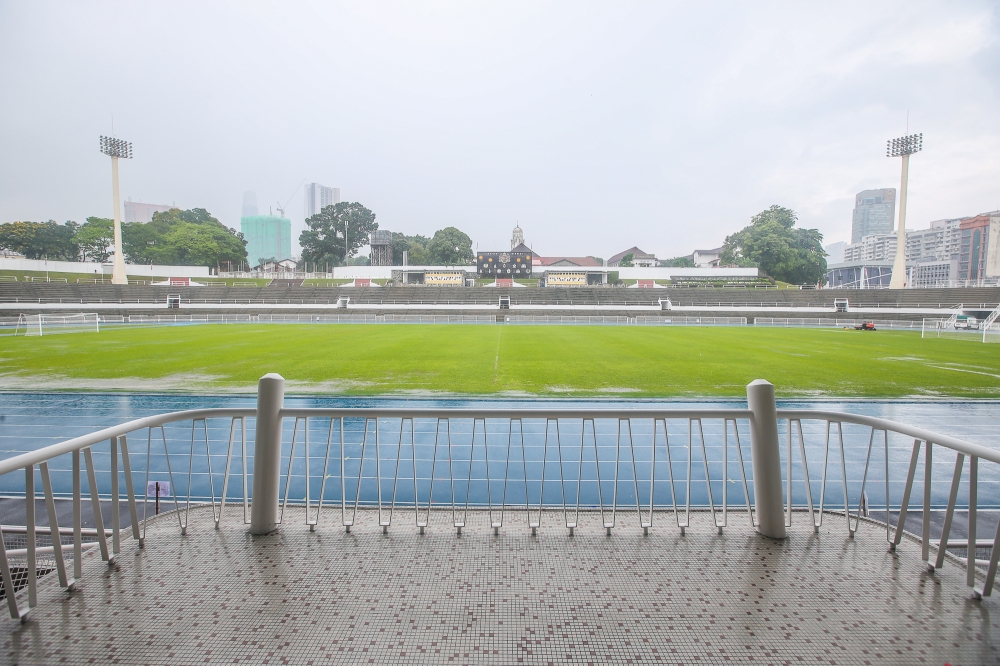
On the other side of the awning, you can see the saluting platform with its two flag pole holders at the grandstand area. — Pix by Yusof Mat Isa
Both the first floor area and the saluting platform have been retiled with the same mosaic tiles at the main entrance’s lobby.
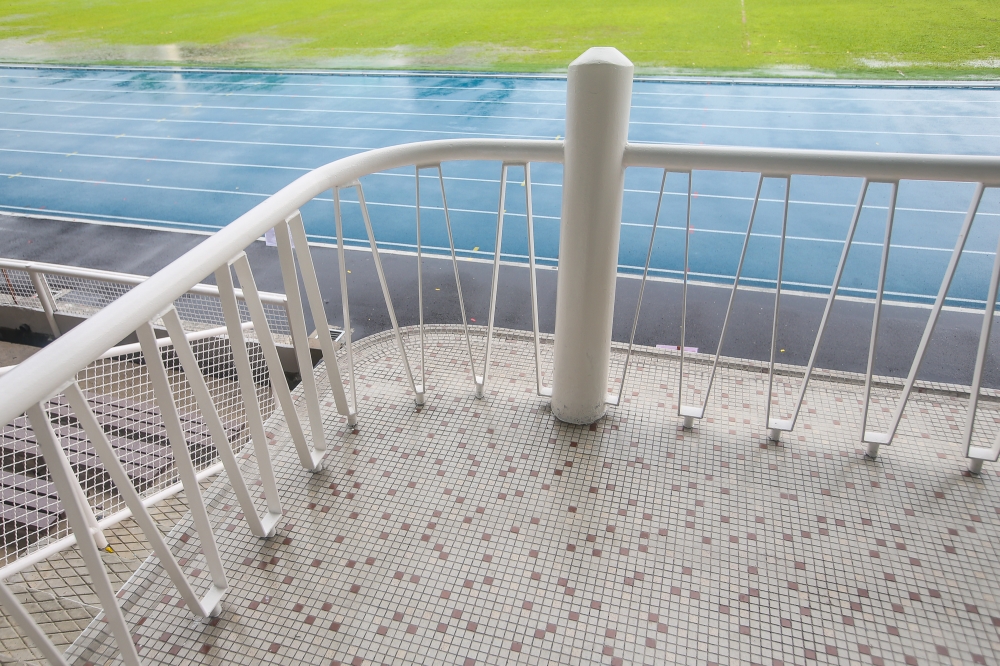
A close-up look of the saluting platform’s tiles. — Pix by Yusof Mat Isa
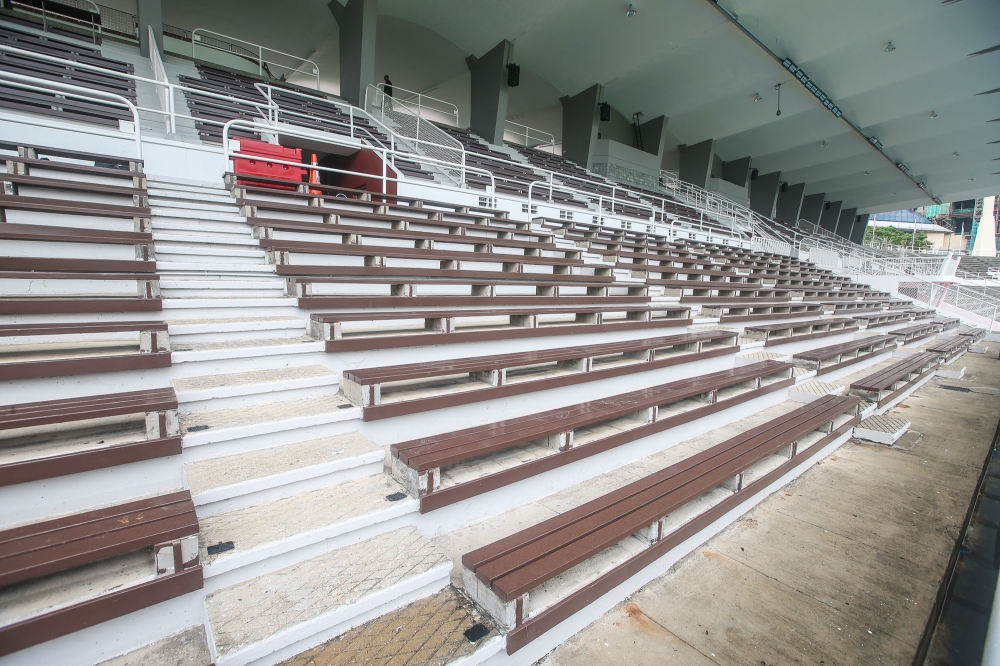
The seats at the grandstand area, which were at one point modified to plastic bucket seats, have been restored to their original timber seating. You can see the saluting platform on the right of this photograph. — Pix by Yusof Mat Isa
If you paid close attention to the previous photo, you might have noticed small black squares on some of the steps for the seating area.
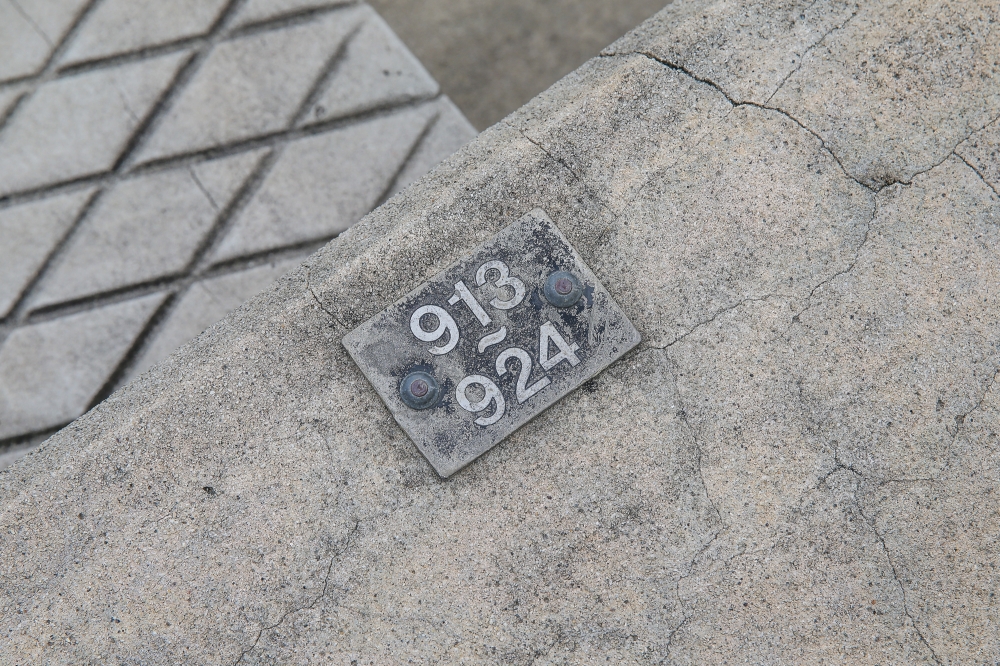
Those are little plates showing the seat numbers for that row of seats. — Pix by Yusof Mat Isa
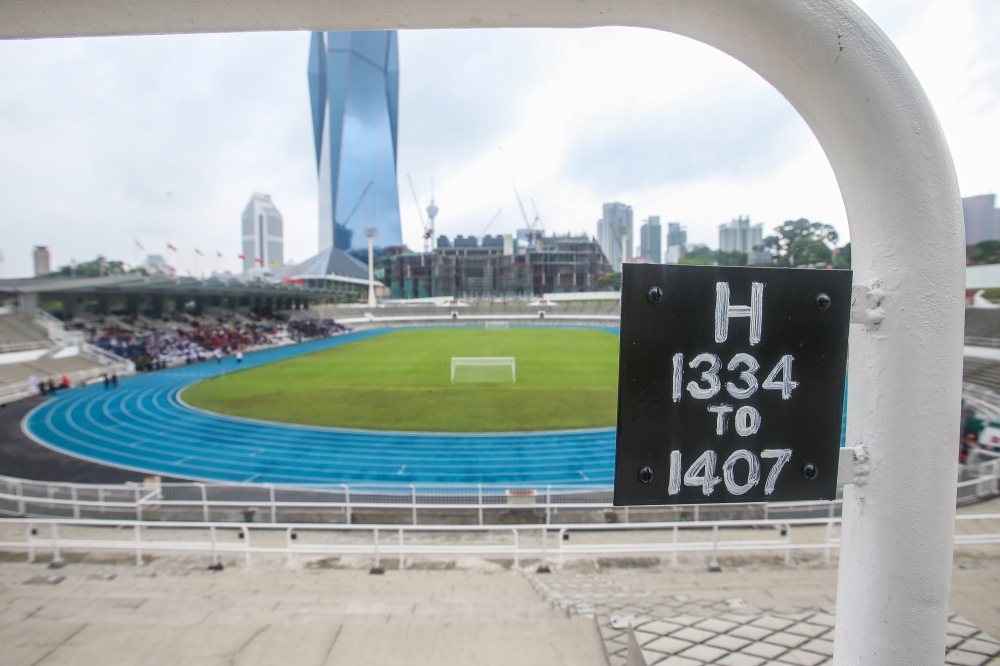
There are also these metal plates around the stadium that also show the seat numbers for the 20,000-seat Stadium Merdeka. — Pix by Yusof Mat Isa
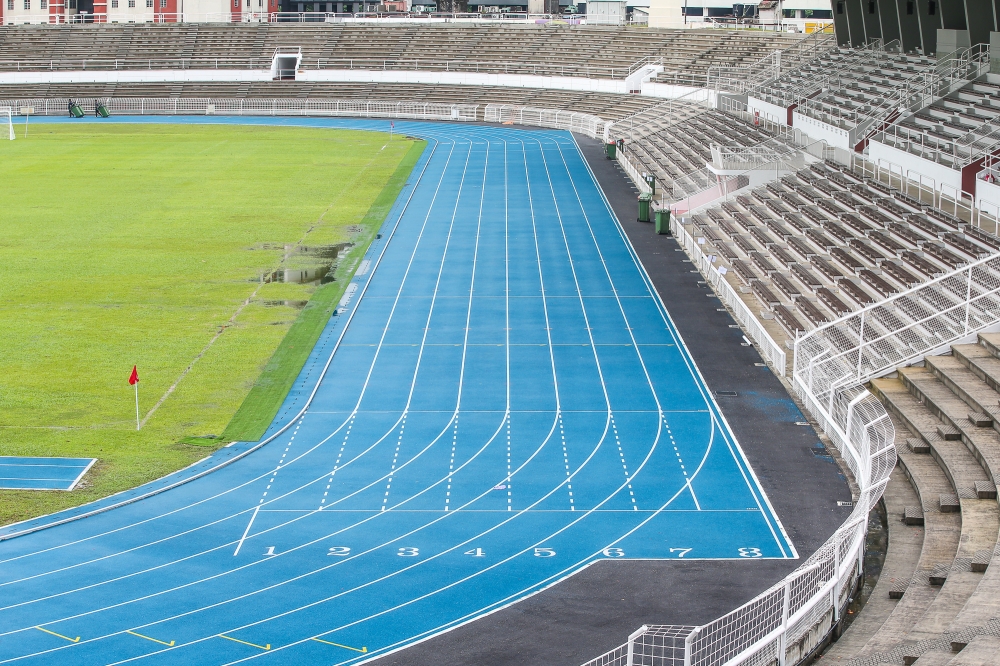
Just like the original design, only the seats under the shell roof at the grandstand area are wooden seats, while the other seats around the stadium have concrete surfaces. — Pix by Yusof Mat Isa
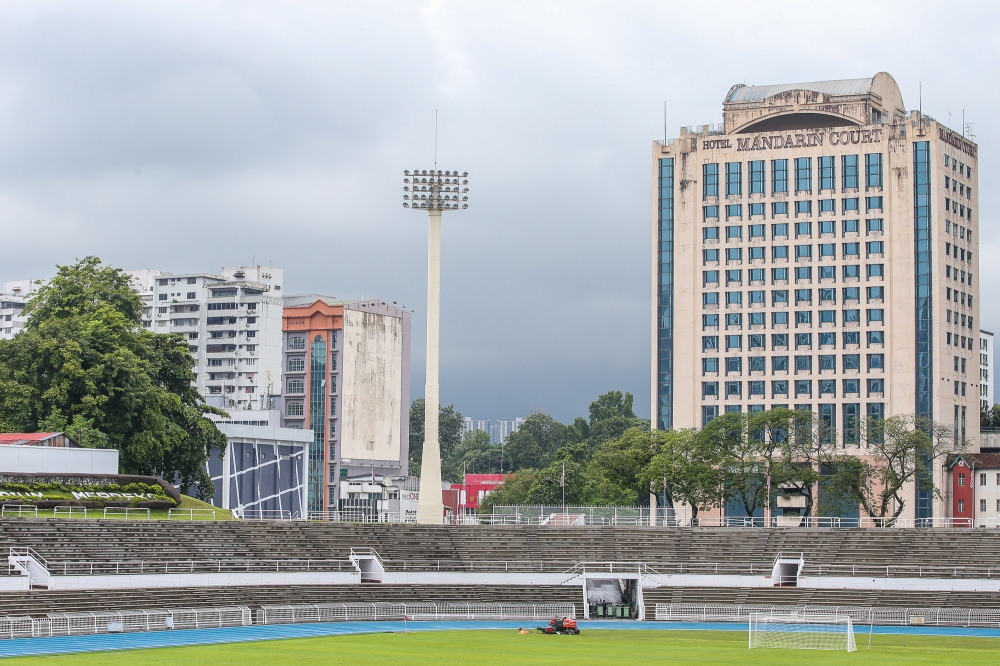
Do watch out for the concrete floodlight towers at each of the stadium’s four corners. They were the tallest prestressed structure in the world in 1957 and still remain standing 67 years later. — Pix by Yusof Mat Isa
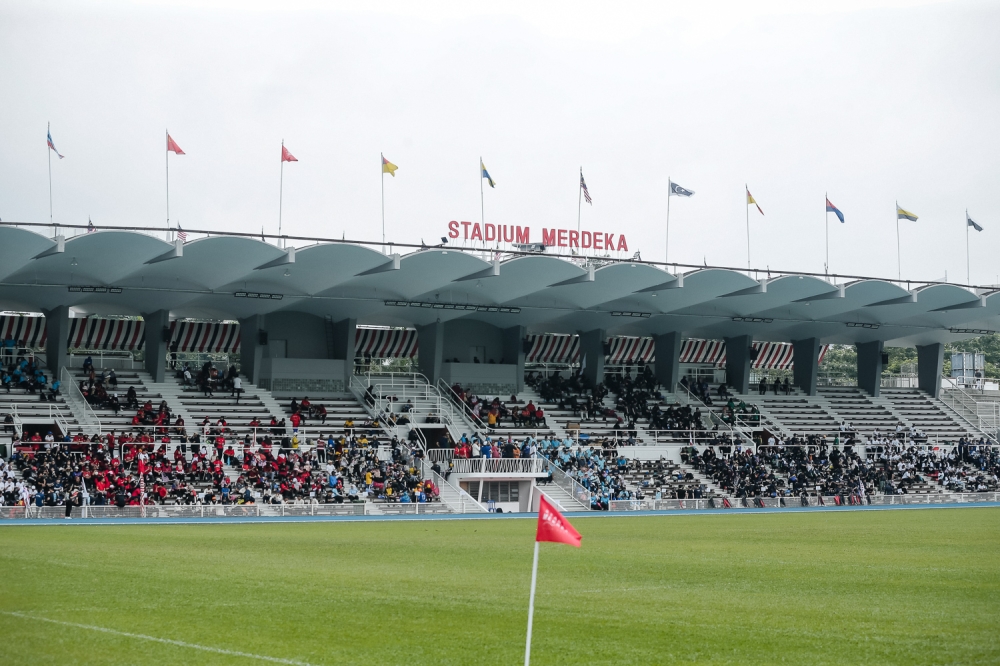
This is the appearance of the grandstand area under the cantilevered shell roof, which was the largest in the world when it was built in 1957. — Picture by Raymond Manuel.
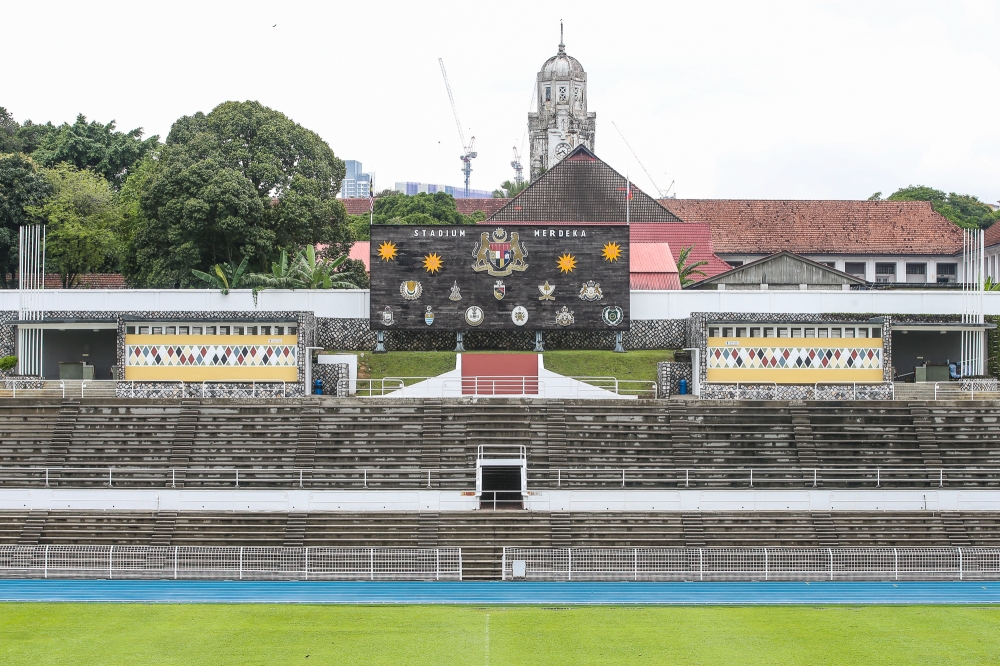
Opposite the grandstand area are the rebuilt manual scoreboard and toilet blocks. — Picture by Yusuf Mat Isa
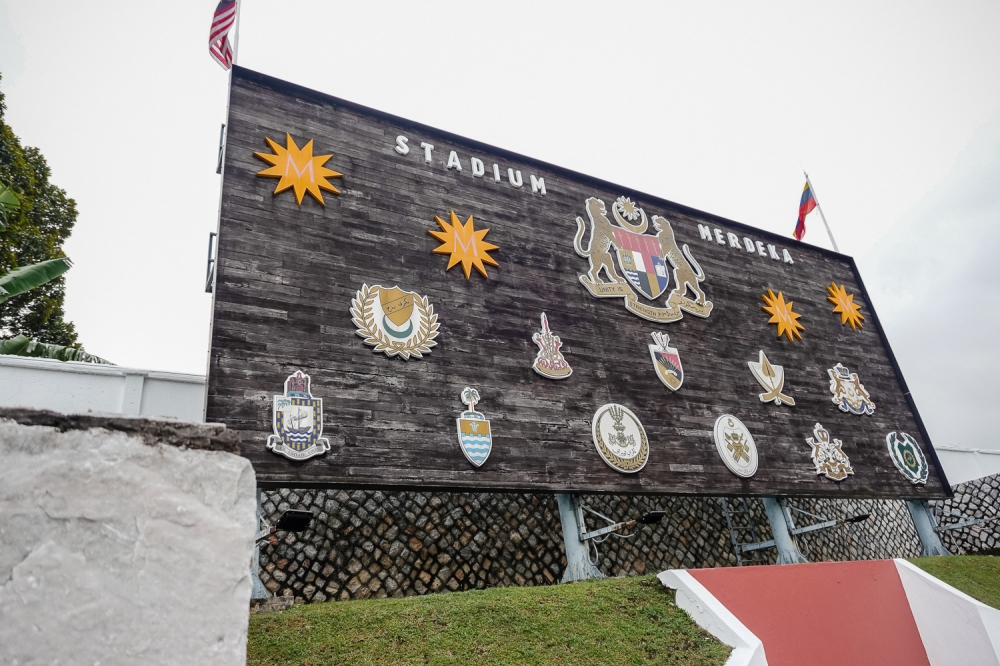
This scoreboard is as it was in 1957 when Malaya declared independence, with 11 emblems (the nine Malay states of Johor, Pahang, Negri Sembilan, Selangor, Kedah, Perlis, Kelantan, Terengganu, Perak and the former Straits Settlements of Melaka and Penang). — Picture by Raymond Manuel
Come drop by Stadium Merdeka today! Come look at this architectural marvel which was built in less than a year from July 15, 1956 to August 21, 1957 at a total cost of Malayan dollar $2.3 million by the Public Works Department, just in time for the proclamation of Malaya’s independence.
You can come use its eight-lane running track for free at certain hours of the day. The running track goes round the Olympic-size football field.
Today, Stadium Merdeka will also be open to the public as part of the free event PESZTA 2024, featuring exhibitions (photographs, paintings by young artists, Independence Day and Stadium Merdeka’s history), a community football tournament, a batik painting workshop, and other fun activities.
Stadium Merdeka is also hosting an eight-week football tournament called Merdeka Legend League every Wednesday night until October 30.
Check out Stadium Merdeka’s social media platforms @stadiummerdeka and @merdeka118 for the latest information on public access and use of the stadium’s facilities.
Recommended reading:
How Stadium Merdeka was faithfully restored to its 1957 look: Behind the scenes of the RM13m project


